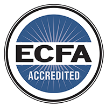Tax, Financial and Legal Guidance

Get Answers Now
Find The Answers You Need To Lead Your Church With Confidence
Tax, financial and legal challenges make ministry complex. Navigating these issues can feel like a maze — or a minefield. That’s why WatersEdge offers complimentary guidance to churches and ministries. Search our FAQs to find answers to the most common questions, or ask our experts using the form below.
Prefer learning in person? Consider attending one of our annual Church Finance Conferences. Registration opens July 1.
Church Finance Conference 2025
Go deeper with our annual conference series. Join us in person or virtually.
September 23 – Broken Arrow & Virtual
September 25 – Moore
FAQs
Tax Questions
How do I get a copy of my church’s 501(c)(3) letter?
How do I get a copy of my association’s 501(c)(3) letter?
Does my church need to issue a 1099 to a guest speaker/performer for donations collected from the audience?
The answer to this question depends on the circumstances.
- If the money was collected by the church and immediately given to the speaker/performer without counting or depositing it, no 1099 is needed. In this case, the audience members who contributed would not be eligible to use their gift as a charitable tax deduction.
- If the money was collected, counted and deposited before the church wrote a check to the speaker/performer, a 1099 is required. In this case, the audience members who contributed would be eligible to use their gift as a charitable tax deduction.
- If the speaker/performer was engaged by contract from the church and the church paid the appearance fee by check, a 1099 is required.
Somewhat surprisingly, the speaker/performer is responsible to account for the money received as taxable income received as the result of services rendered. This is not the responsibility of the church, but that of the speaker/performer.
Does my church need to withhold taxes for each employee?
Yes, churches are required to withhold tax federal and state taxes for each employee, as well as Medicare and Social Security (employer share) for non-ordained staff. Ordained ministers are considered self-employed and typically pay all of their own social security and Medicare tax. Generally, churches are exempt from federal and state unemployment taxes.
Can the church reimburse staff for ministry expenses?
Yes. But to be reasonably sure that the church can reimburse employees’ expenses incurred in the course of their duties, the church needs a written, accountable reimbursement policy. The policy should specify what expenses the church will reimburse and under which conditions. For example, if entertainment, amusement, or recreation expenses are directly related to an employee’s job, they can be reimbursable, but only if these types of expenses are included in the church’s reimbursement policy.
Failure to have a written, accountable reimbursement policy would require the church to include any amounts paid or reimbursed for business expenses as salary on an employee’s W-2. This would subject the employee to potential tax liabilities for the reimbursement.
Is a “love offering” to a church employee taxable to the employee?
Unfortunately, the answer is yes. Any payment to an employee is almost always taxable.
The only circumstance in which a love offering would not be taxable is if a church member made the gift directly to the employee. In this case, the church was not involved in the transaction and the gift would not typically count as taxable income, so long as the gift amount is $15,000 or less. However, the donor would not be eligible to use their gift as a charitable tax deduction.
How do I determine my housing allowance?
The Clergy Housing Allowance Clarification Act of 2002 amended the tax code to limit the housing allowance (portion of compensation that is not taxable) for ministers who own (or rent) their home to the lesser of:
- The fair market rental value of the home fully furnished including utilities;
- The amount designated as housing;
- Or the amount actually spent on housing expenses.
We recommend you set your designated housing allowance slightly higher than you expect to spend to allow for any unplanned housing expenses. Use the formula below as a general “rule of thumb” to find a starting place:
Step 1: Appraised fair market value of house x 1.5% = Subtotal 1
Step 2: Subtotal 1 + average monthly utilities = Subtotal 2
Step 3: Subtotal 2 x 12 (months) = Designated Housing Allowance
Legal Questions
How do I get a copy of my church’s articles of incorporation?
How do I get a copy of my church’s constitution and bylaws?
Ask My Question
Don’t see the answer you’re looking for in our FAQs? Submit your question to our experts. Most questions are answered within two business days. You can also email your question to taxhelp@WatersEdge.com.
Church Finance Conferences 2025
Want to learn more? Go deeper with our annual conference series. Join us in Oklahoma City, Owasso, or virtually.
LEARN MORE











